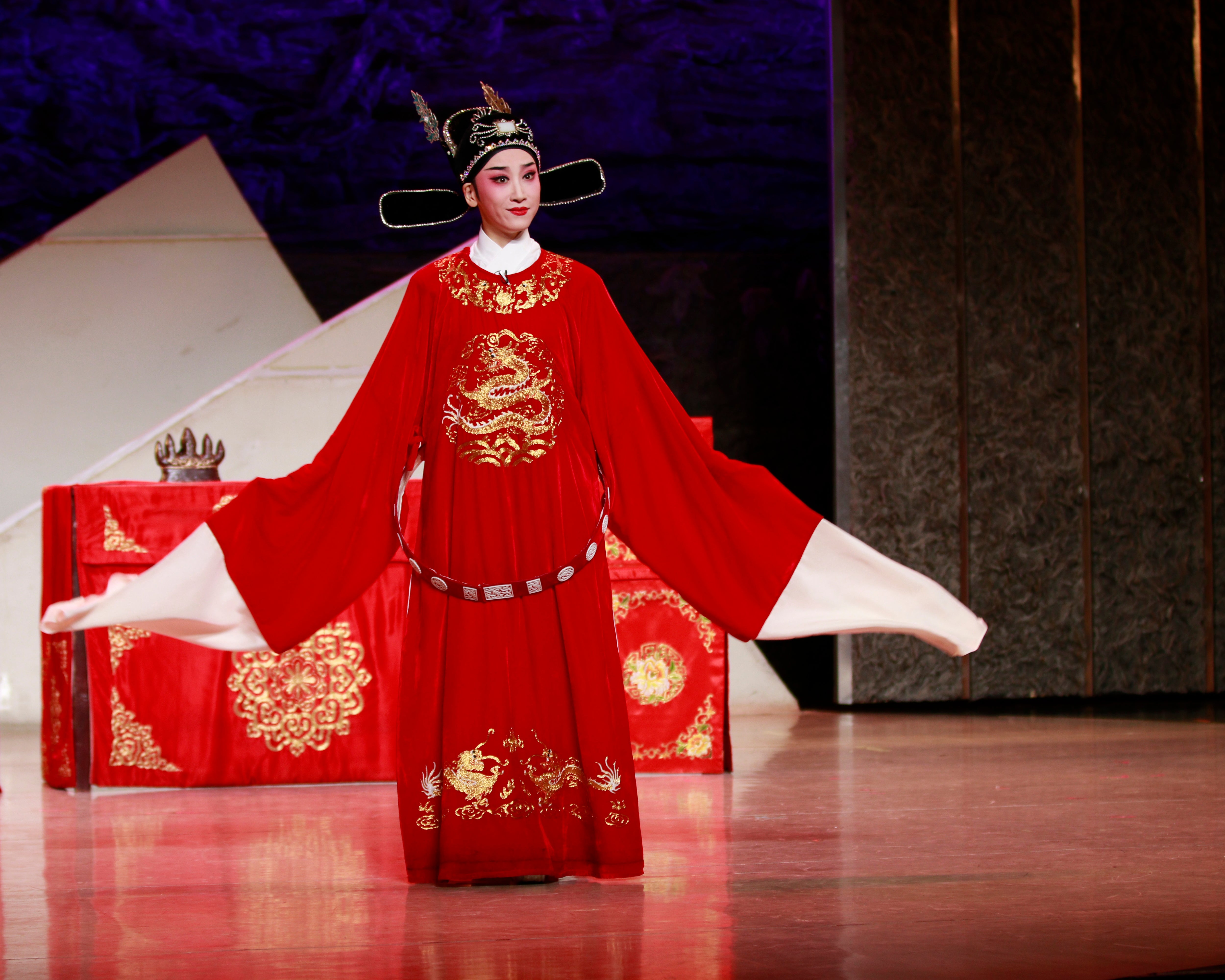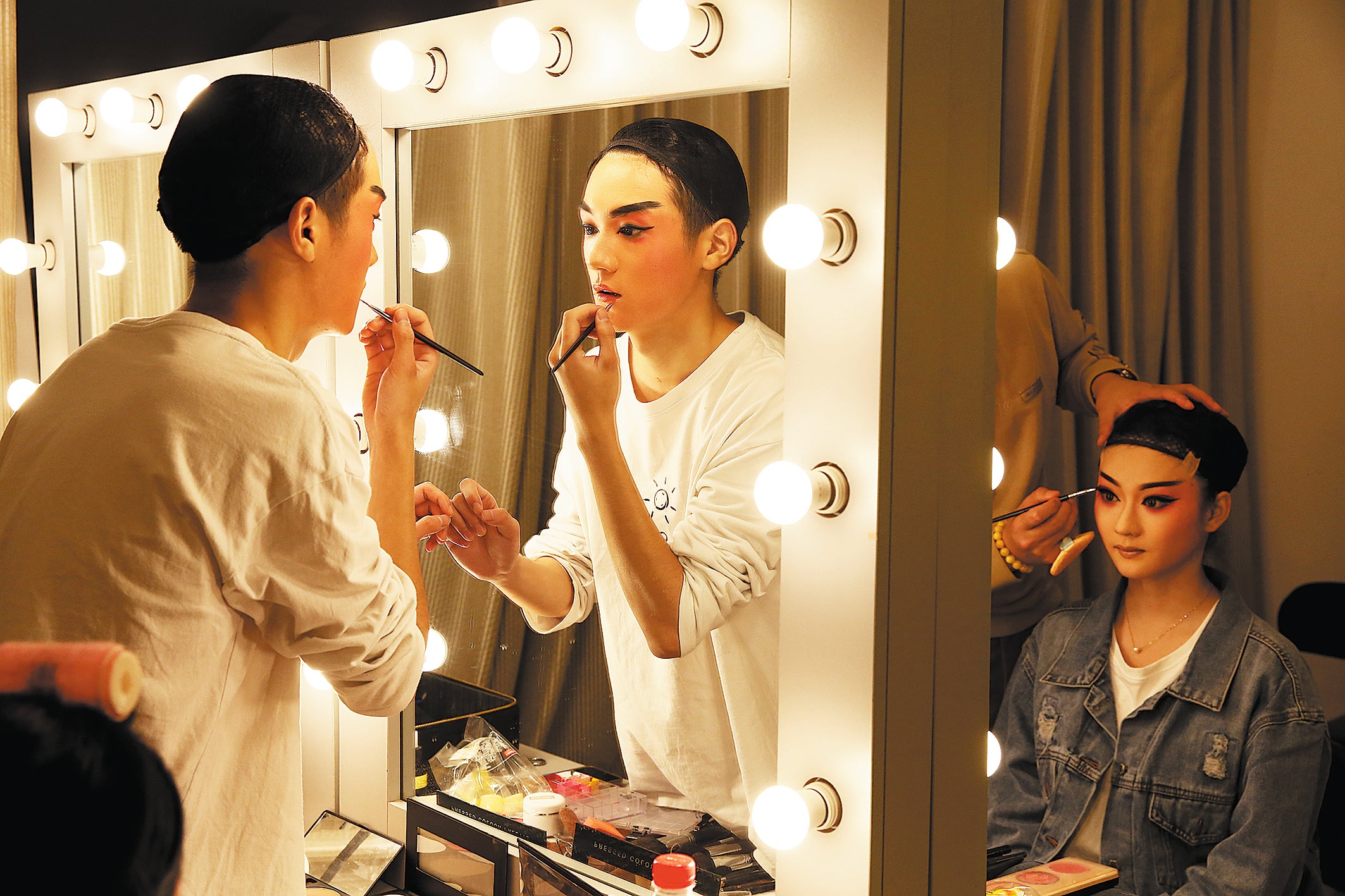Opera widens its reach to send cultural message
THE ARTICLES ON THESE PAGES ARE PRODUCED BY CHINA DAILY, WHICH TAKES SOLE RESPONSIBILITY FOR THE CONTENTS

An outdoor stage made from cement stands in a village in Huaining, Anhui province. On this single rostrum, a man and a woman, their voices resonating with pure, melodious beauty, perform a classic Huangmei Opera work, Tian Xian Pei, which translates as A Goddess’s Marriage. The work depicts a folk tale centred on the love story between a goddess and a man, while its lyrics portray a typical scene in daily life.
The lyrics include:
You plow the fields, and I weave the cloth. I fetch water, and you water the garden. Even though the modest home may be in disrepair, it can still offer protection from the wind and rain. As long as there’s love between husband and wife, life feels sweet even in hardship.
Villagers bring small wooden stools from their homes to an open space in front of the stage, creating an impromptu audience area. Some decide to perch on their bicycles or tricycles scattered around the stage, while a few enjoy warm bowls of porridge, sipping thoughtfully as they become engrossed in the plot unfolding onstage.

Children, brimming with curiosity and wonder, playfully climb on and off the stage. After each show, performers often receive gifts from the villagers, including fruit such as peaches and plums, which have been picked from the residents’ trees.
This scene of villagers immersing themselves in a Huangmei Opera performance is a notable departure from the formal and solemn ambiance of traditional opera theatres. It also aptly reflects the essence of this art form, which is firmly grounded in the daily lives of ordinary people, and reflects their emotions and life stories.
Such scenes are frequent occurrences throughout Huaining, Anqing city, where Huangmei Opera, also known as caichaxi (tea-picking opera), originated and became popular during the Qing Dynasty (1644-1911).
From April to October, more than 200 such performances were staged, each lasting at least 100 minutes.
Liu Lihua, head of the Huangmei Opera Troupe of Huaining county, said these shows at grassroots level are aimed at bringing high-quality artistic experiences to local people, enriching their cultural lives, and cultivating fertile ground for the theatrical arts.
However, she noticed that during visits to villages across the county, most audiences consisted of seniors and children, with few young people attending. As a result, early last year, Liu made a new attempt to attract young audience members to engage with the theatre.
She arranged for seven young women from the troupe to portray the seven goddesses from a folk tale and perform Huangmei Opera works via livestreaming on the Douyin short-video platform, the Chinese version of Tik Tok.
To Liu’s surprise, within three months of starting the livestreaming sessions, the troupe’s account had gained nearly 600,000 followers and received 3 million “likes”. The number of followers has since risen to 1.3 million.
Almost every day at 7:30 pm, the seven actresses go live in their broadcast room, where they sing for three hours. They also introduce the classic works and vocal styles of Huangmei Opera to their audiences.
The graceful and fluid vocal style of the art form harmonises with the gentle, melodious way in which the Anqing dialect is spoken – characterised by smooth and uninterrupted intonation.
Liu said the county troupe’s online popularity has led to increased offline performance opportunities. In the past year, the players have received invitations to perform in provinces such as Guangdong and Shandong, and there are even possibilities for international performances.
“We hope more young audiences will visit the theatre to appreciate Huangmei Opera,” Liu said.

Bookmark popover
Removed from bookmarks